Bloating
Struggling with bloating? Here’s what you need to know to find relief.
ALL TEST ARE ACCREDITED & REGULATED BY



What is bloating?
When you’re bloated, your stomach or abdomen can feel full and uncomfortable, or even painful.
This bloating happens when your gastrointestinal tract contains too much gas or air. Bloating can be mild, or more severe, and may present as:
– A visibly distended or swollen abdomen
– Feeling very full and uncomfortable
– Feeling of tightness in the abdomen
– Excess gas – belching and/or flatulence
– Rumbling or gurgling
There are several causes of bloating, so it’s important to diagnose the cause of your bloating and find out why it’s happening to you.

Why does bloating happen?
Prolonged periods of bloating could indicate an underlying health problem, if so you should see your GP.
Possible causes can include:
Irritable bowel syndrome (IBS diagnosis)
Ulcerative colitis, a form of inflammatory bowel disease (IBD), where the inner lining of the large bowel is inflamed and develops ulcers
Crohn’s disease, the other form of IBD, where some parts of your colon are inflamed
Too much bacteria in your small intestine (called small intestinal bacterial overgrowth, or SIBO)
Gastroesophageal reflux disease
Food intolerances, especially lactose or fructose intolerance
Producing too much gas (dysbiosis and fermentation)
Weight gain
Stress or anxiety
Delays in your food and drink moving on from your stomach (called gastroparesis)
Eating too quickly, so that you swallow too much air (called aerophagia)

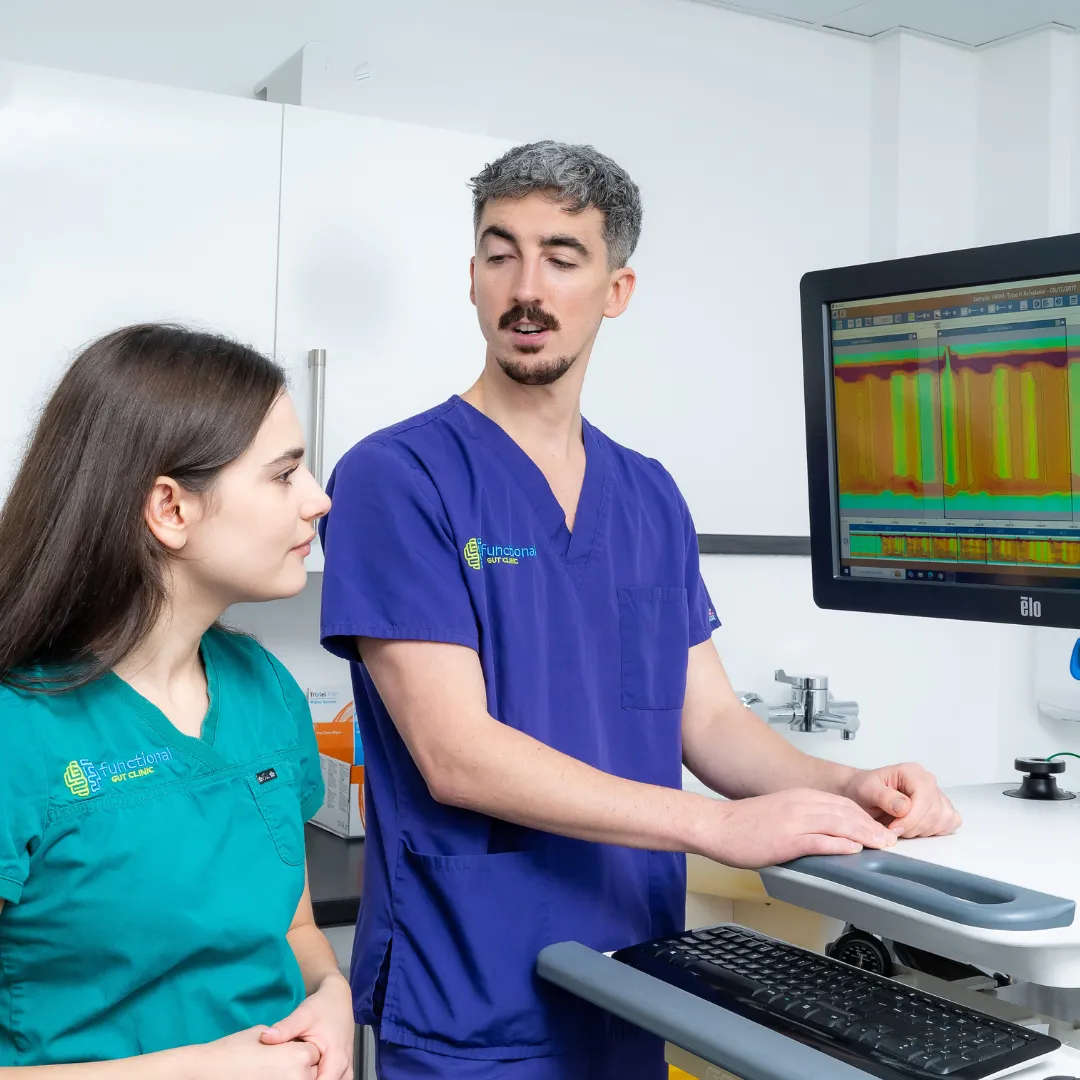
Diagnosing bloating
Feeling bloated is no fun, but once you know what’s going on you can start to manage your symptoms and the underlying causes.
Testing options:
At the Functional Gut Clinic, we can run the following tests to diagnose the causes of bloating:
Gastric emptying test– which measures how quickly food leaves your stomach
Carbohydrate malabsorption breath test– which finds out if you have certain food intolerances (lactose or fructose)
Small intestinal bacterial overgrowth (SIBO) breath test– which finds out if you have an overgrowth of bacteria in your small intestine (called SIBO)
Oesophageal manometry– which measures the function of your oesophagus (food pipe)
24-hour pH impedance monitoring– which looks at whether you have any reflux
Colonic transit study-a non-invasive test which looks at how long it takes for faeces to pass through your bowl
Learn more about bloating
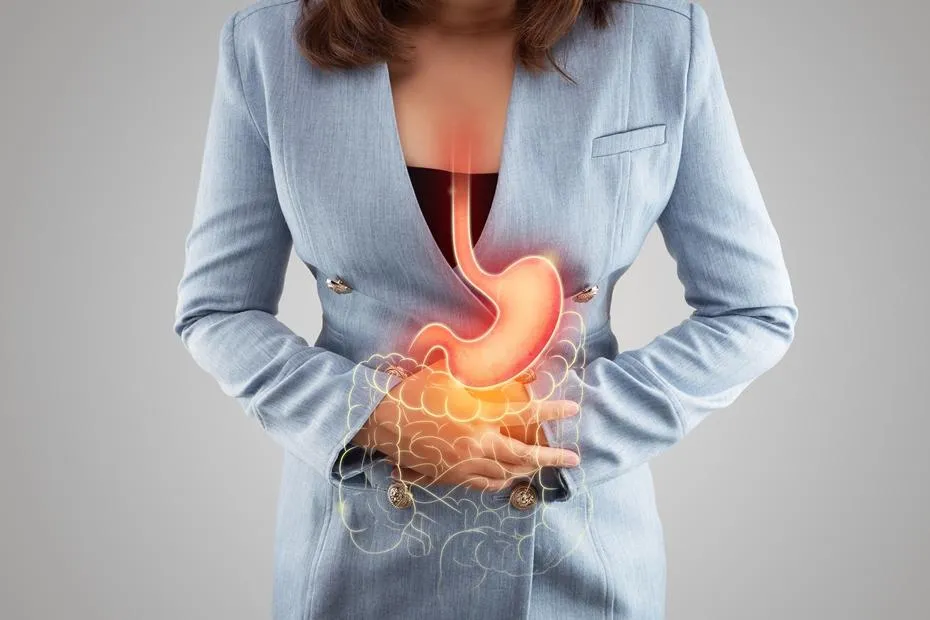
Acid reflux, Heartburn, and GERD
Heartburn. Acid Reflux. GERD. You’ll often find these terms used to refer to any condition where there’s acid present above the stomach. It’s no wonder patients often ask, “Are acid reflux, heartburn, and GERD the same?” Despite being used interchangeably, there is a difference:
Acid reflux involves acid moving up and out of the stomach into the oesophagus, throat, and mouth.
Heartburn is the painful sensation that occurs from acid reflux. The pain is often central to the chest – just behind the breastbone.
Gastroesophageal reflux disease (GERD) is a medical condition where acid reflux occurs repeatedly. Usually, GERD is defined as two or more episodes of acid reflux in a week that affect your quality of life or lead to complications.
Understanding acid reflux, heartburn, and GERD is crucial to treating and resolving your symptoms. That covers the causes of heartburn, the symptoms of GERD, and many other aspects. Let’s get started.
Understanding Acid Reflux
Your stomach uses acid to kill harmful pathogens and begin the process of digestion. Usually, the acid is kept in the stomach by the lower oesophageal sphincter (LOS). The LOS is ring of muscle that works like a valve, allowing fluids and food to enter the stomach but not leave.
If the LOS is weak or doesn’t close properly, acid from the stomach can move back into the oesophagus. Often, this occurs if the stomach pressure increases or the LOS is extremely relaxed. As the acid moves backwards, it irritates and inflames the structures along the way, including the oesophagus.
What Causes Acid Reflux?
The primary cause of acid reflux is a weak LOS. However, it’s not the only factor. Other potential causes that can increase the risk or severity of acid reflux include:
Obesity or being overweight
Eating large or fatty meals
Lying down soon after eating
Pregnancy
Smoking
Hiatus hernia
Certain medications (e.g. NSAIDs, calcium channel blockers)
Alcohol, caffeine, or spicy foods
Stress and anxiety
These causes contribute to acid reflux in several ways. These factors can increase stomach pressure (e.g., obesity or eating a large meal), relax the LOS (e.g., smoking or alcohol), or increase stomach acid production (e.g., stress or fatty meals).
Understanding Heartburn
Heartburn is a bit of a strange term. You might think it indicates a heart problem, but it doesn’t. In fact, it’s got nothing to do with your heart, nor is it a condition itself.
Instead, heartburn is the characteristic symptom of acid reflux. It’s often described as a burning sensation just behind the breastbone. It occurs when acid irritates the oesophagus, causing inflammation. The pain can be sharp or like a tightening sensation. The higher the acid rises, the worse the pain becomes.
Heartburn is usually worse after eating, especially fatty or spicy foods. Lying down or bending over can exacerbate the symptoms as acid readily enters the oesophagus.
Understanding GERD
GERD is a chronic medical condition where acid reflux occurs repeatedly (more than twice per week). People with GERD experience heartburn; however, the continual acid exposure also leads to several other symptoms.
It's worth noting that GERD in children can present with different symptoms than in adults, sometimes including frequent vomiting, feeding difficulties, or respiratory issues.
The symptoms of GERD include:
Hoarse voice (acid irritates the vocal cords)
Persistent dry cough
Regurgitation (stomach contents enter the mouth)
Damage to tooth enamel (from excess acid in the mouth)
Bad breath
Trouble swallowing (dysphagia)
The underlying causes of GERD are the same as those of acid reflux—the difference lies in how frequent the symptoms are. If left untreated, GERD can cause lasting damage to the oesophagus. Ongoing inflammation (oesophagitis) may lead to scarring and the formation of strictures. Over time, changes in the oesophageal lining can occur, which may increase the risk of oesophageal cancer.
That’s why it is so crucial to diagnose and treat GERD. The earlier the condition is resolved, the less damage will occur long term.
Treating GERD
The primary treatment for GERD is lifestyle modifications. Triggers like large, fatty meals, smoking, alcohol, eating before bed, obesity, and more must be eliminated or minimised to prevent repeated episodes of acid reflux.
Alongside lifestyle changes, your doctor may prescribe medications. Antacids neutralise acid during an acid reflux attack, whereas proton pump inhibitors (PPIs) or H2 blockers reduce stomach acid production, providing long-term relief.
Ready to learn more about GERD symptoms? The Functional Gut Clinic has put together a comprehensive guide covering everything you need to know about GERD and acid reflux. We’re a leading provider of acid reflux testing, helping patients understand and treat their acid reflux symptoms.
Hear from people we’ve helped, just like you.
"Very professional while welcoming and friendly"
"The manner and demeanour of all staff from reception to people carrying out the test was very professional but welcoming and friendly. Atmosphere is very relaxed and all instructions clear and concise."
London Patient

"Highly recommend this"
"Thanks to Dr Hobson and everyone at the Functional Gut Clinic. The whole team is very kind and generous and they are doing things that are cutting edge and they actually get results."
Manchester Patient

"Highly recommend this"
"After stopping my lansoprazole, every time I had a warm drink, I could feel it burn all the way down to my stomach. Thank you to Sam for making me feel at ease." - Manchester Patient

"My experience could not be better"
"Pleasant and knowledgeable staff that made the experience more enjoyable than it should be!" - London Patient

"Very friendly and knowledgeable"
"An excellent service from beginning to end. I would recommend to anyone who was considering having testing done. Very friendly and knowledgeable!" - Manchester Patient

"Very kind and helpful"
"It was also great to have time to talk to the clinicians – very important when you have problems. Reception staff also very kind and helpful." - Manchester Patient

Are you experiencing any other symptoms
Symptoms are often closely connected. Find out more below.
Reflux
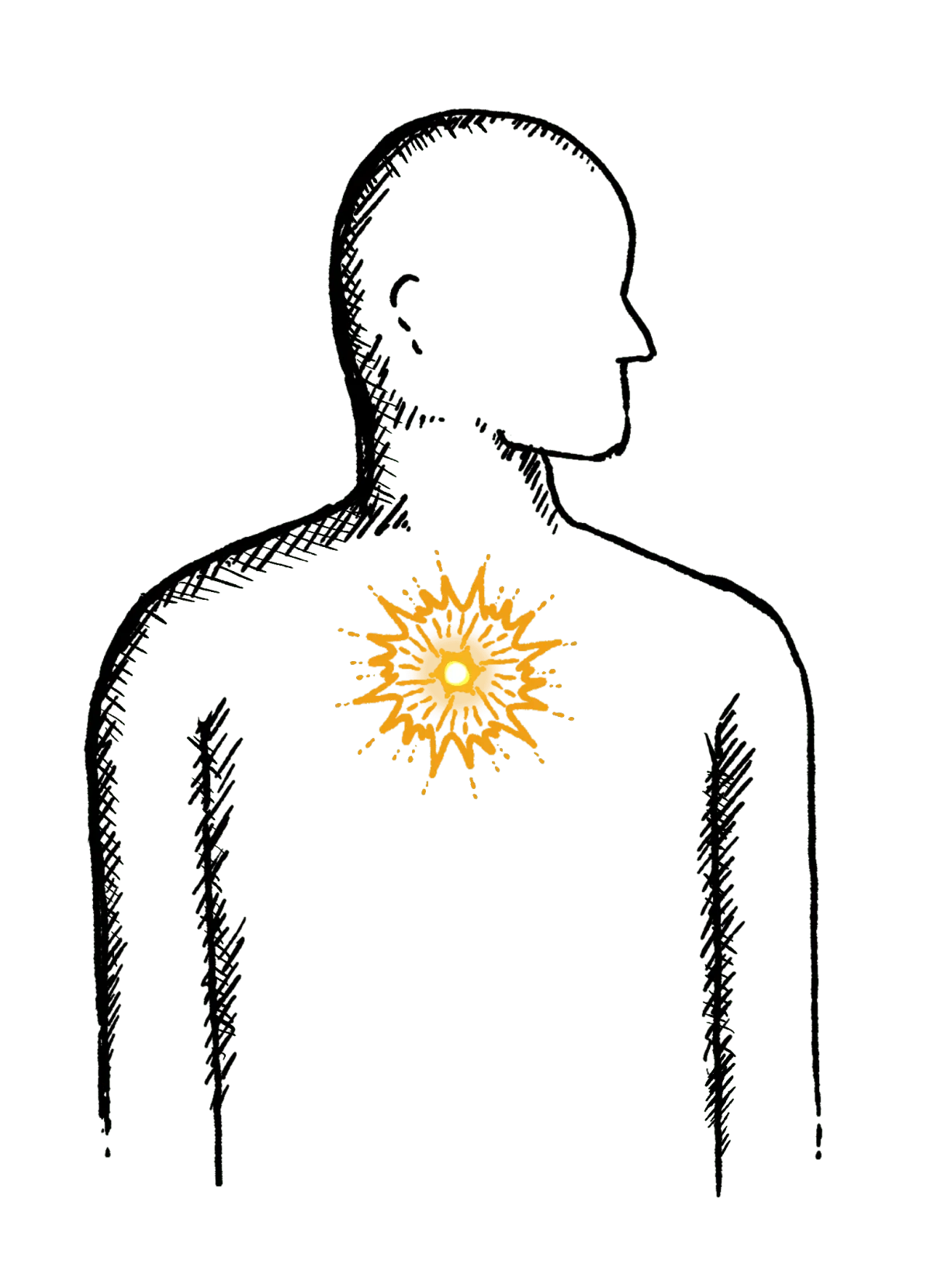
Burning mid-chest, worse when bending or lying down
Constipation
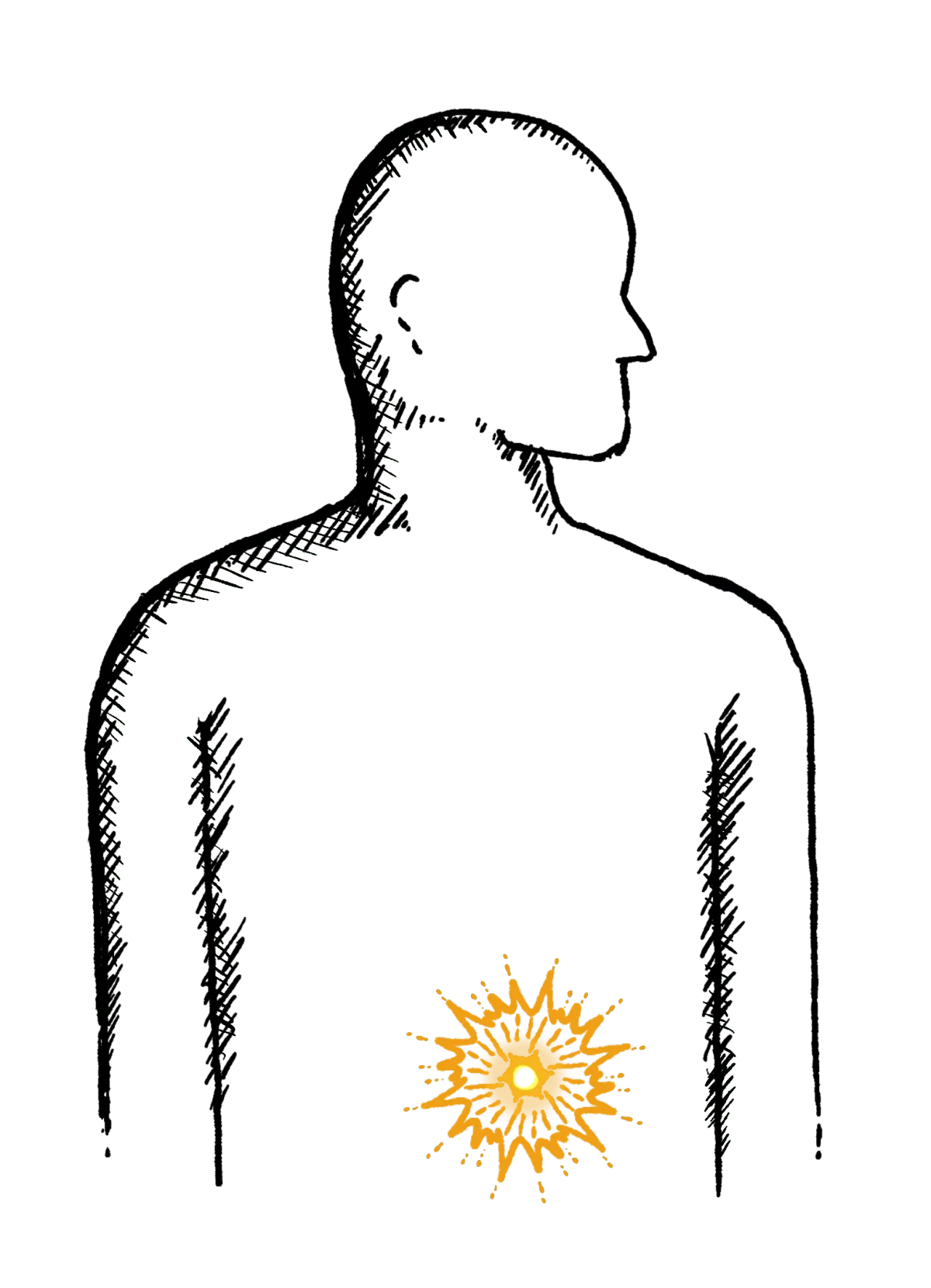
Difficulty going to the toilet, unusual stools, often with stomach ache or intestinal cramps, bloating, nausea or appetite loss
Heartburn

A burning pain in your chest, just behind your breastbone.
The pain is often worse after eating...
Regurgitation
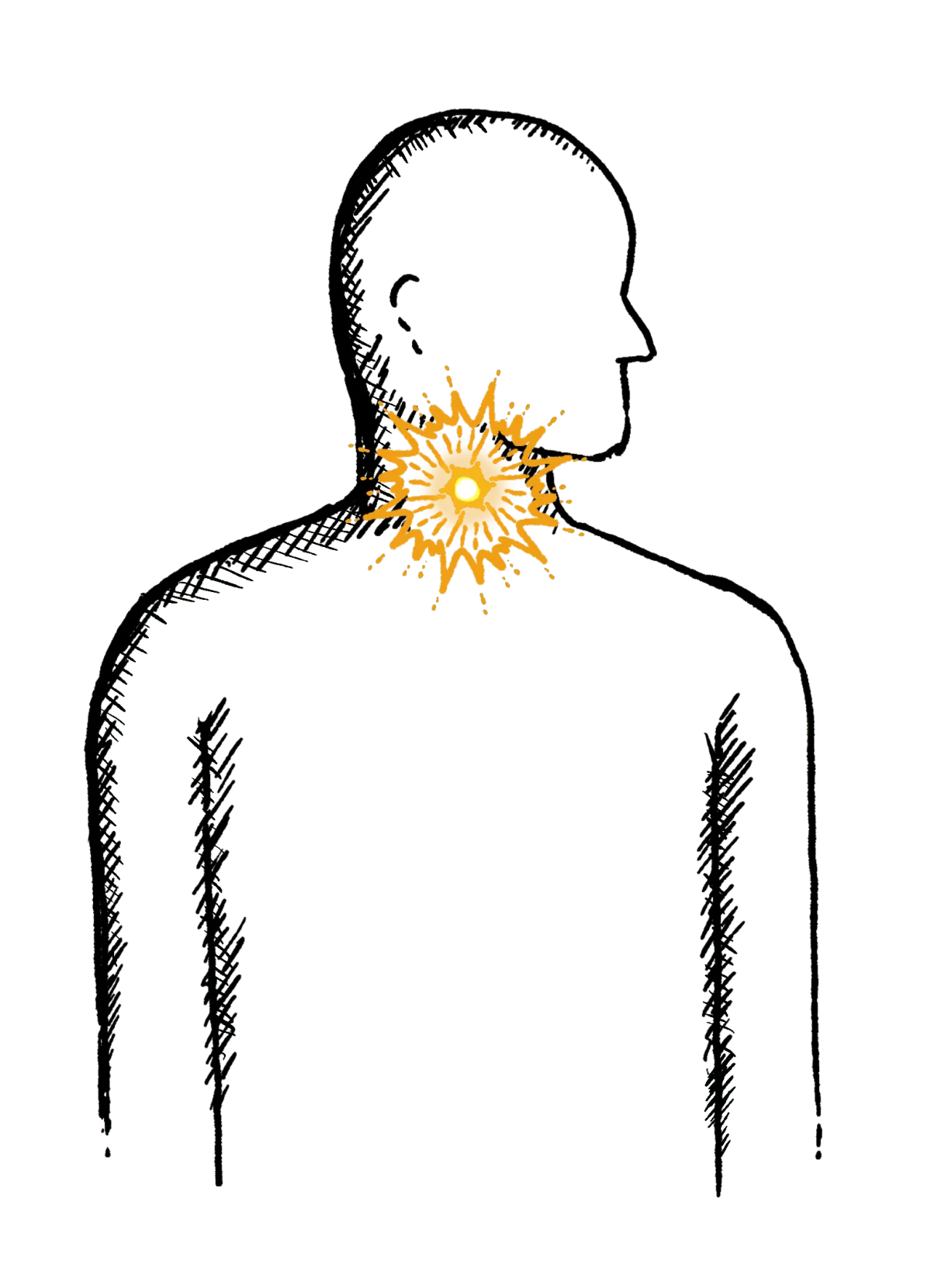
Bringing food or drink back up, difficulty swallowing, feeling that food or drink is stuck in your throat, horrible taste in your mouth
Swallowing Issues

Dysphagia - difficulty swallowing, feeling that food or drink is stuck in your throat, horrible taste in your mouth
Diarrhoea
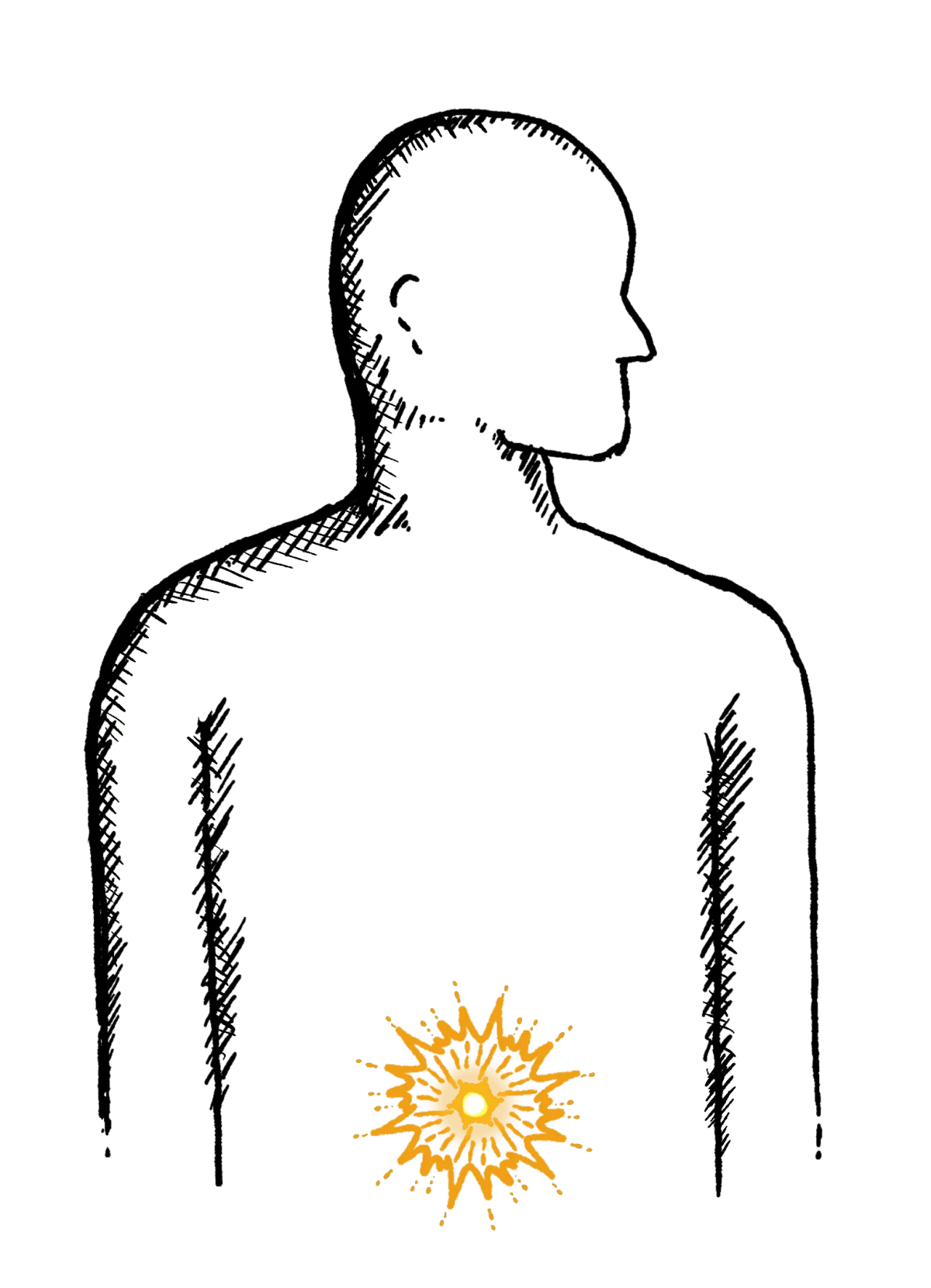
Loose or explosive stools, can’t get to a toilet in time
Abdominal Pain
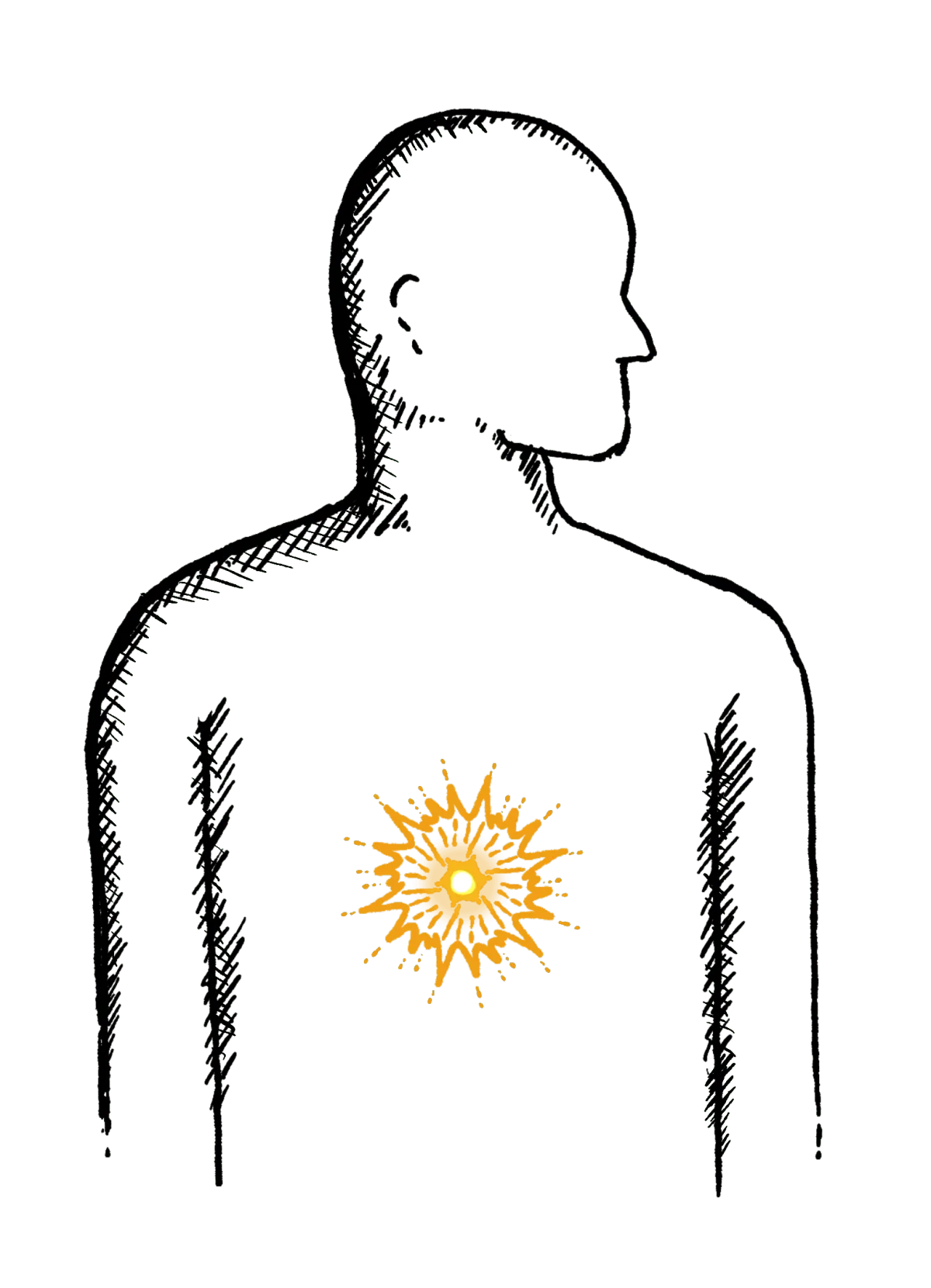
Cramps; sharp or dull pain, Bloating, Excessive belching, Nausea or vomiting
Faecal Incontinence

Stools leak unexpectedly, Can’t get to a toilet in time
IBS
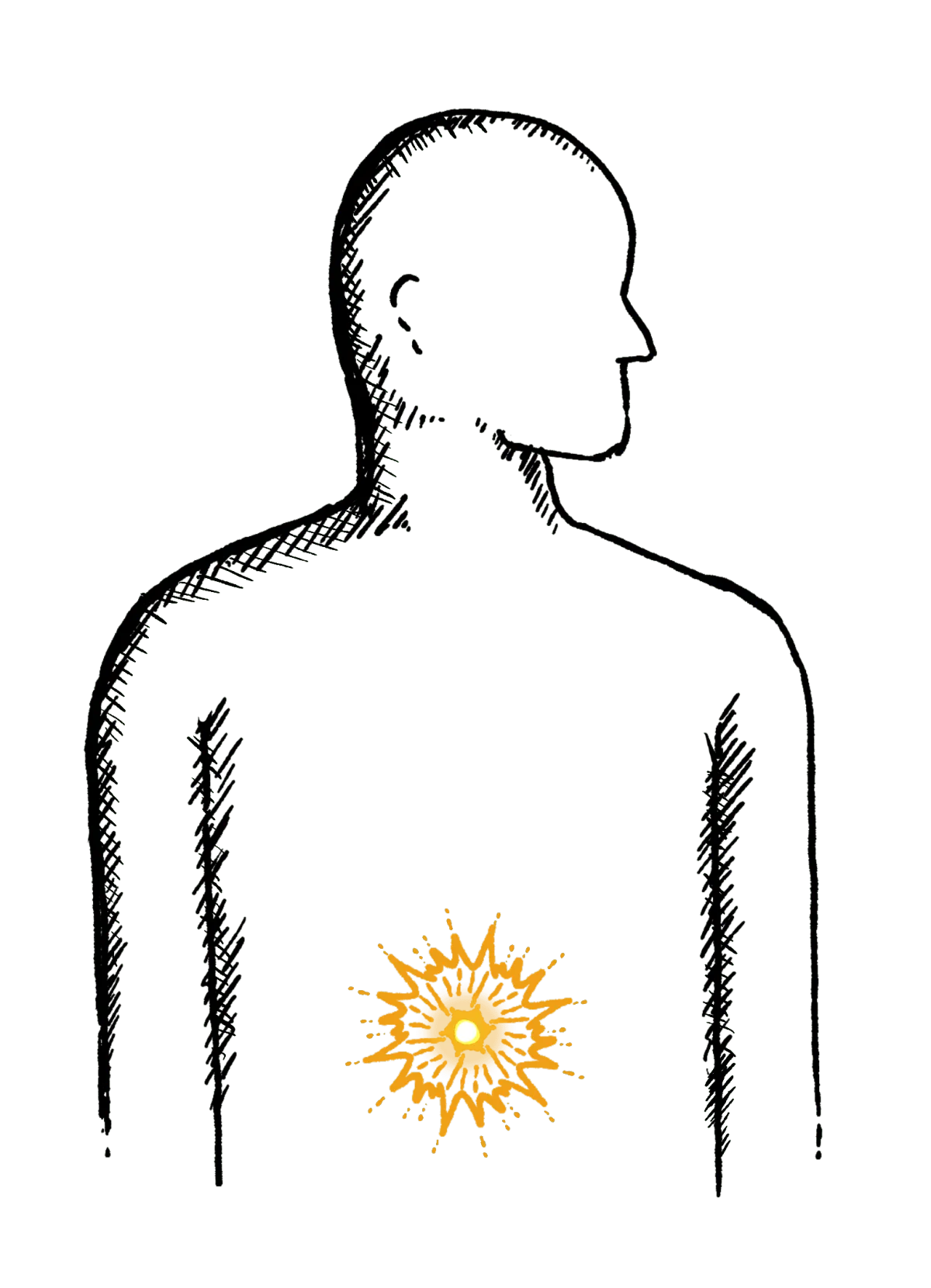
Abdominal pain or cramping, bloating, changes in bowel habits and urgency, gas

